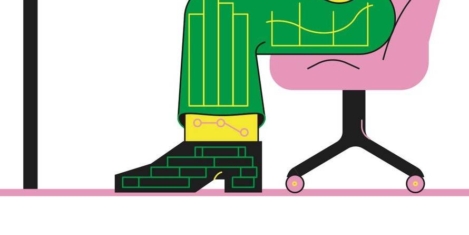July 14, 2019
Workers want offices that inspire themselves and others
 New research from Ambius, claims that more than half (56 percent) of Brits have felt what they call office envy after visiting another organisation’s workspace. Despite the majority (55 percent) communicating this ‘lack of office inspiration’ to their office manager or employer, most saw no change as a result. The survey of 1,000 UK office workers also claims that employees are conscious of how their office looks on social media. Just one in five think their office space is beautiful, and as a result, only 22 percent would be proud enough to post a picture of it on Instagram, or other social channels. (more…)
New research from Ambius, claims that more than half (56 percent) of Brits have felt what they call office envy after visiting another organisation’s workspace. Despite the majority (55 percent) communicating this ‘lack of office inspiration’ to their office manager or employer, most saw no change as a result. The survey of 1,000 UK office workers also claims that employees are conscious of how their office looks on social media. Just one in five think their office space is beautiful, and as a result, only 22 percent would be proud enough to post a picture of it on Instagram, or other social channels. (more…)










 An emerging super-group of employees and consumers in the UK is adding intense pressure to already challenged C-suite leaders who are navigating tough economic, technological and geo-political environments – further threatening company growth, a new Accenture (NYSE: ACN) study finds. With nearly three-quarters (73 percent) of these powerful stakeholders believing they have the potential to destroy company value in the long term, the C-suite understands the need to respond.
An emerging super-group of employees and consumers in the UK is adding intense pressure to already challenged C-suite leaders who are navigating tough economic, technological and geo-political environments – further threatening company growth, a new Accenture (NYSE: ACN) study finds. With nearly three-quarters (73 percent) of these powerful stakeholders believing they have the potential to destroy company value in the long term, the C-suite understands the need to respond. 








 A new, nationwide study released today, has revealed over a quarter (28 percent) of Britons feel their phone or social media addiction is actively stopping them living life to the full, with as many as 83 percent saying they are desperate to spend more time in the real world, according to the report commissioned by the photographic tech company
A new, nationwide study released today, has revealed over a quarter (28 percent) of Britons feel their phone or social media addiction is actively stopping them living life to the full, with as many as 83 percent saying they are desperate to spend more time in the real world, according to the report commissioned by the photographic tech company 












June 11, 2019
What is workplace technology really for, anyway?
by Pete Trainor • Comment, Technology